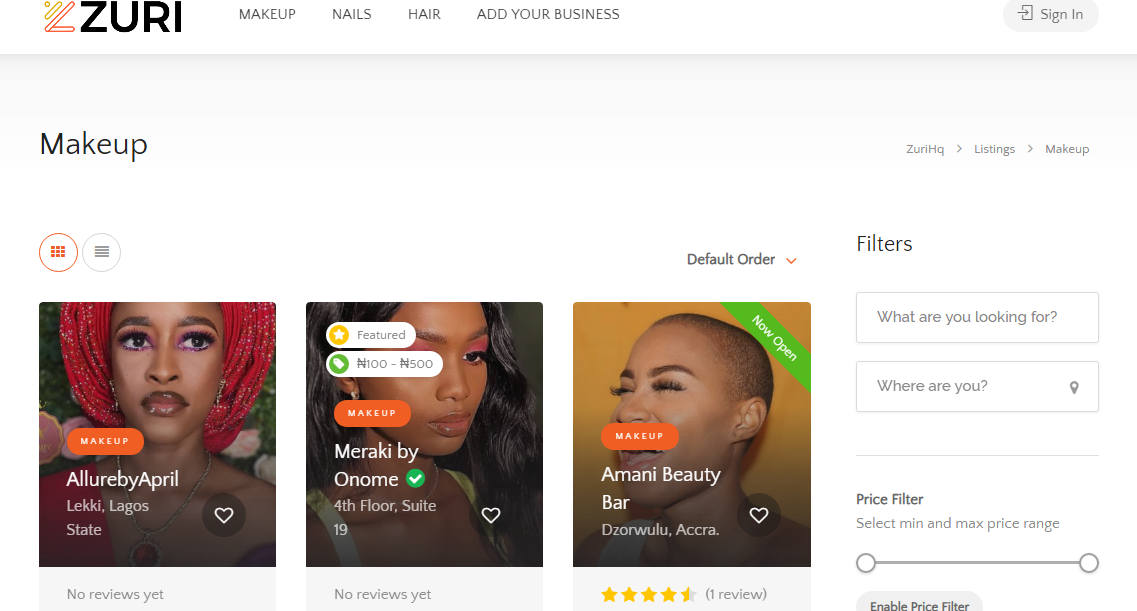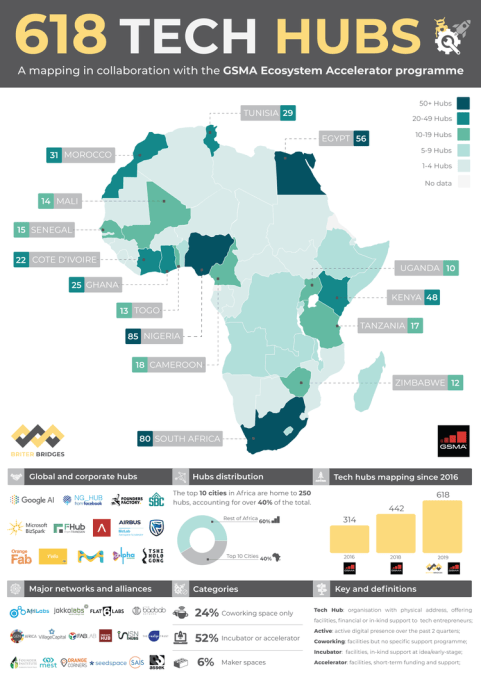Pan-African incubator MEST announced investments in 11 startups from its 2019 cohort that will each receive $100,000 in financing.
The $1.1 million backing for a graduating class is the largest to date for the Accra-based organization — which operates as a training program and seed fund for African innovators to build successful commercial tech companies.
By country presence and membership, MEST is one of Africa’s largest tech hubs, and has a new managing director — Ashwin Ravichandran — who succeeded Aaron Fu in July.
This year’s investment recipients come from four countries: Nigeria, Kenya, Ghana and South Africa. The startups offer goods and services across diverse sectors, from agtech to fintech to beauty and entertainment (see full list below).
Ghanaian fintech startup Bezo Money will use the funding from MEST to launch its app aimed at formalizing and digitizing West Africa’s traditional savings groups, founder Mubarak Sumaila told TechCrunch on a call from MEST’s Accra offices.
MEST 2019 cohort graduate and investment recipient Zuri has created a platform to organize, review and connect beauty services and professionals to clients online. “The global beauty services industry is worth over $100 billion and the African market is worth over $30 billion,” said Zuri founder Onyinye Nnedolisa. The company will use its investment funds on product development and business development.

MEST takes equity in its portfolio startups, which have 18 months of incubation support from the organization, including the option to work out of MEST incubators in multiple African markets, MEST’s new MD Ashwin Ravichandran told TechCrunch.
On future focus, MEST is looking to expand to additional countries. It currently has incubator spaces in Ghana, South Africa, Nigeria and Kenya and has a strong eye on setting up shop in Cote d’Ivoire, according to Ravichandran.
MEST will continue its entrepreneurial training programs, aimed at shaping founders who can launch companies, and maintain a strong focus on developing and investing in Africa’s early-stage startups.
MEST is funded primarily by Norwegian entrepreneur and philanthropist Jorn Lyseggen’s Meltwater Foundation. For several years, the incubator has discussed forming a full on VC fund.
That could be imminent. “We have all the pieces in place right now, I think Jorn’s just figuring out the last steps before announcing it,” said Ashwin. The VC fund would have more capital and go beyond MEST’s seed-stage investments to consider Series stage rounds to African startups.
Africa has seen a boom in tech hubs over the last decade that have become focal points for startup formation, digital skills building, events and IT activity.
A joint GSMA, Briter Bridges report tallied 618 tech hubs across the continent. Like MEST, many of the hubs got their start from grant funding, and there’s an ongoing conversation about viability and sustainability for these spaces going forward.
 Increasingly, some of the largest African hubs — such as MEST, Nigeria’s CcHub and Kenya’s iHub — have moved toward more fee-based services and investment activities to generate greater operating revenue. On whether this is a future model for Africa’s tech hubs, “Yes, it definitely is,” Ravichandran said.
Increasingly, some of the largest African hubs — such as MEST, Nigeria’s CcHub and Kenya’s iHub — have moved toward more fee-based services and investment activities to generate greater operating revenue. On whether this is a future model for Africa’s tech hubs, “Yes, it definitely is,” Ravichandran said.
Startups interested in joining MEST’s 2020 cohort, and potentially gaining investment upon graduation, can get recruitment updates online.
Here’s MEST’s list and description of the 11 ventures from its 2019 class that earned $100K seed rounds:
- Massira: a social support network and healthcare service aggregator for women,
launching in Ghana - BezoMoney: a digital savings platform for traditional savings groups, launching in Ghana
- Farmula: a web and USSD platform to create a direct connection between farmers and businesses using an automated process to increase order efficiency, launching in Kenya
- CoFundie: a platform for crowd-sourcing funds for the development of buildings using cost efficient and time-saving techniques, launching in Nigeria
- Niqao: a financing platform that connects merchants and lenders to enable them to offer customers the option of paying in installments, launching in Ghana
- Saada: a messaging and mobile money ticketing services for increasing digital sales and data collection, launching in Kenya
- Nadia: a personalized automated health companion that provides quick medical attention and prescriptions, launching in Kenya
- Kweza: a service that enables informal retailers to order products at the best price and receive deliveries directly to their stores, launching in South Africa
- CoVibes: a platform that pairs verified studios and producers, allowing them to list their profiles and manage bookings while enabling artists to find and collaborate with them and each other, launching in Nigeria
- Adi+Bolga: a platform using the power of technology and community to gather data and create conversations around the black skin and black skincare, launching in Ghana
- Zuri: a platform that helps beauty professionals manage their customers and provides an easy way for people to find and book beauty services, launching in Nigeria

